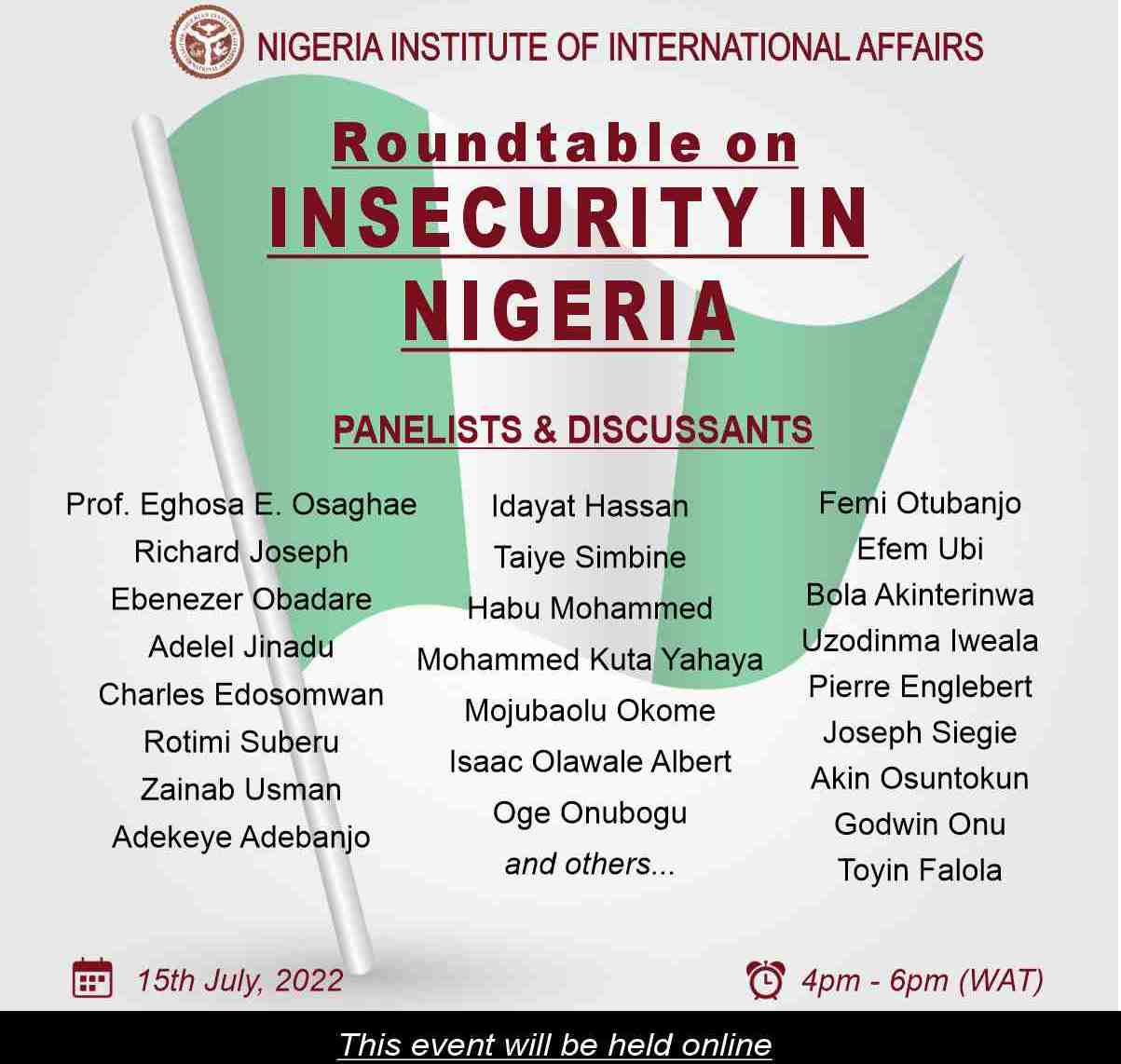The Nigerian Institute of International Affairs, (NIIIA) might have come to what people would have wanted to see it engage more than anything else: the question of the origin, dynamics and endgame in the insecurity that has enveloped Nigeria for quite some time.
NIIA is availing all those keen to listen to more critical perspectives on the puzzle beyond gut feelings paraded in newspapers an opportunity to do so through a Roundtable on the topic. It has scheduled a Zoom session to that effect for July 15th, 2022 at 04:00 pm West Central Africa time. NIIA gives the link to the Zoom session to which it is inviting those keen as
https://us02web.zoom.us/j/81051584874?pwd=Wk9rVkQvcnZNNzFqWnVnNFhNS01iZz09, with the Meeting ID as 810 5158 4874 and the Passcode: 028372

Prof Eghosa Osaghae, D-G, NIIA
Other details are One tap mobile:
+16465588656,,81051584874#,,,,*028372# US (New York)
+16469313860, 81051584874#,,,,*028372# US
Dial by your location
+1 646 558 8656 US (New York)
+1 646 931 3860 US
+1 301 715 8592 US (Washington DC)
+1 312 626 6799 US (Chicago); +1 669 444 9171 US; +1 669 900 9128 US (San Jose); +1 253 215 8782 US (Tacoma); +1 346 248 7799 US (Houston)
Meeting ID and Passcode remain 810 5158 4874 and 028372 respectively. From one’s local number, it is https://us02web.zoom.us/u/kbp6tit8Ya
Details available to Intervention suggests that this is about the first time that a state-owned institution in Nigeria that is not suspected of complicity one way or the other in the generalized insecurity is providing opportunity for engagement with the unsettling security situation Nigerians have experienced. Obviously tied to Cold War national security paradigm and its secrecy code-oriented practices rather than security as a product of discourses around it, neither the national security establishment nor the universities have risen up to this challenge, thereby leaving the dangerous atmosphere for half-truths and shallow punditry to predominate on the who, what and how of the insecurity crisis.
Now, the NIIA is stepping in with a think tanking approach. Although no interpretivist scholars can be readily identified among its list of panelists and discussants in the Friday firework, the list parades many well located academics and practitioners of the disciplines that deal with (in)security. It is also balanced in terms of those located within and outside the country or who have published on Africa broadly.
State-owned think tanks and even the privately owned ones have, generally, not been able to put up anything brilliant in relation to framing the insecurity crisis, not to talk of pushing such frameworks to consensus as to be constitutive of the power by which a line of action is determined. Although there is the observed problem of the gulf between Nigerian governments and intellectuals in Nigeria, there is also the counter argument that no government anywhere in the world, no matter how unschooled, can ignore a well articulated discourse without consequences.





























1 Comments
Abdullahi Musa
There is something about the way our societies are configured which allows governments to ignore well-articulated contributions without consequences.
Governments do not belong to us, their stimuli come from outside us.